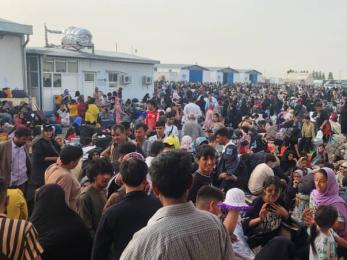Youth & Consequences: Unemployment, Injustice and Violence

Every year, Western donors deploy vast sums of development assistance to dampen the appeal, among the world’s youth, of militias, pirates and terrorists. But guided by little in the way of empirical evidence, it is an enterprise plagued by unclear payoffs and unintended consequences.
Our new report, Youth & Consequences: Unemployment, Injustice and Violence, tackles some of the most persistent assumptions driving youth programming in fragile states. Drawing on interviews and surveys with youth in Afghanistan, Colombia and Somalia, we find the principal drivers of political violence are rooted not in poverty, but in experiences of injustice: discrimination, corruption and abuse by security forces.
In light of these findings, many familiar approaches — vocational training programs, for instance, and civic engagement — are unlikely, in isolation, to have much effect on stability. We need a new approach, one that tackles the sources of instability, not just the symptoms.
In addition to documenting our findings, and the risks of getting youth development wrong, this report provides recommendations for getting youth-focused programming right, including:
- End siloed, single-sector programming, and support multi-sectoral, multi-year programs that create systems within which youth can thrive;
- Target the most vulnerable youth – and be vigilant about ensuring programs don’t just reach privileged youth in urban centers;
- Shape future "countering violent extremism" (CVE) strategies through rigorous, iterative analyses of the political, social and economic factors that drive youth to support political violence; and
- Increase investments in two-track governance programs that connect youth "voices" with meaningful reforms on issues of corruption, predatory justice systems and exclusive governance structures.
